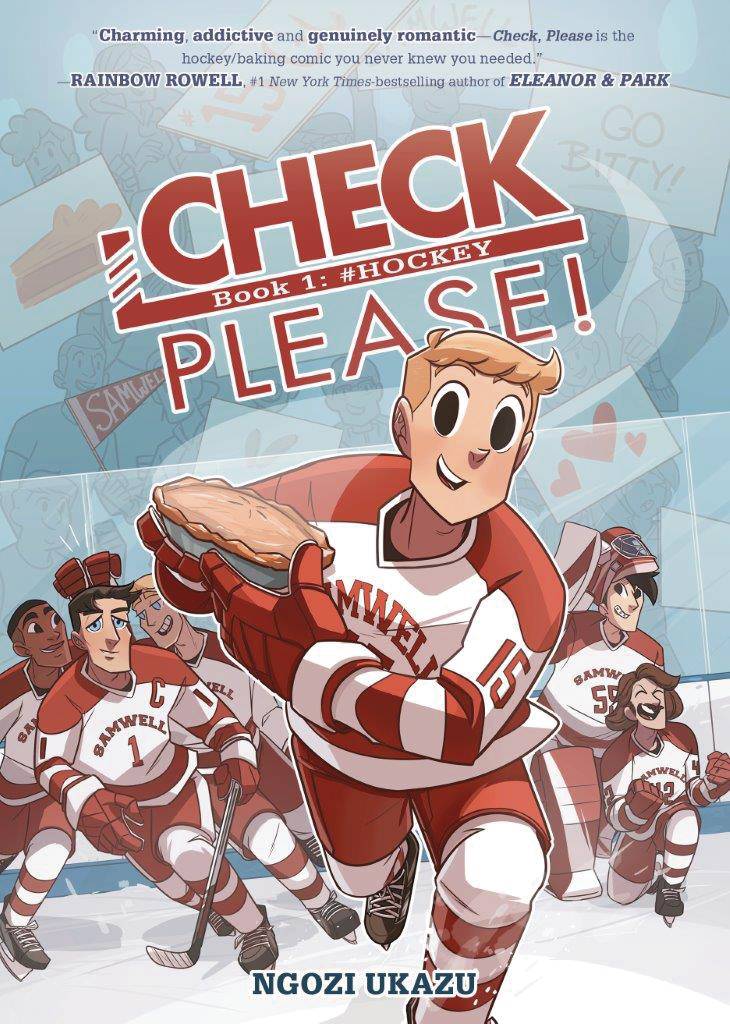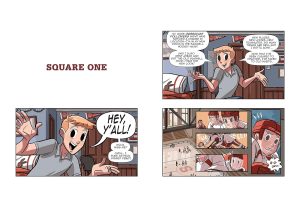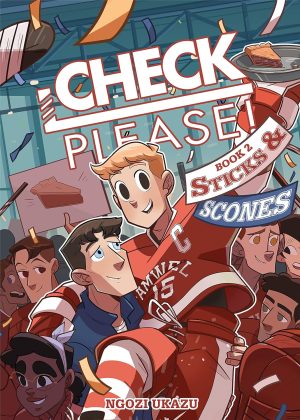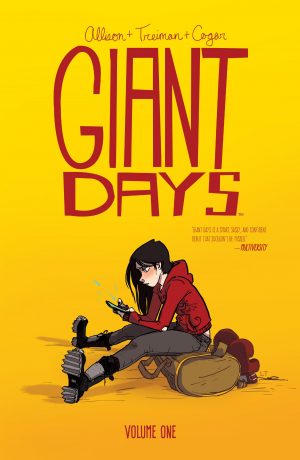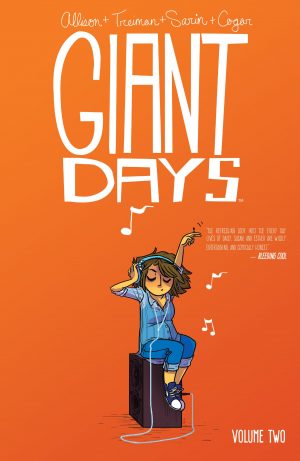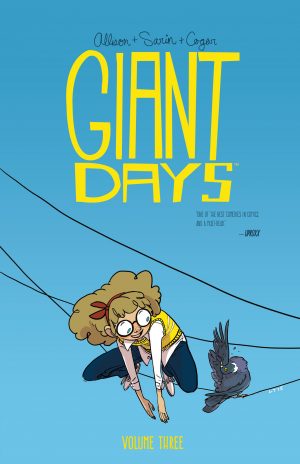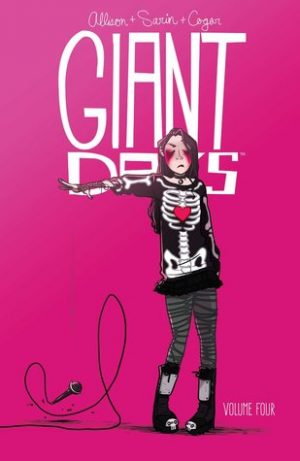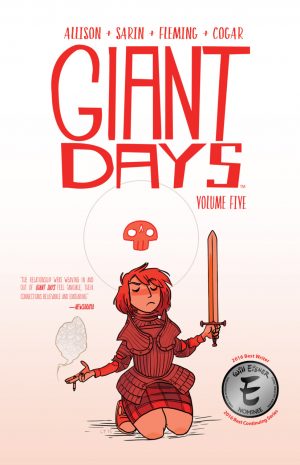Review by Ian Keogh
Check Please! begins with Eric Bittle starting his college freshman year and takes him through the next two years. He was captain of his high school hockey team, and before then a promising figure skater, but it’s a big step up to college level, and while Eric has the skill, his major drawback is too much time spent avoiding being hit. He’s an unconventional hockey player in other respects, having no time for the jock culture, but delighting in baking in the practically unused frat house kitchen.
Ngozi Ukazu draws everyone as a little too wide eyed, literally, although that also applies to Eric in the metaphorical sense, but from the start there’s a strength, and eventually the cartooning delivers continual personality to match her upbeat world.
That world is perpetually good natured, idealistic, and non-judgemental, and while fiction doesn’t have to follow reality, at times it all seems too good to be true even if Eric chose his college for having the most LBGTQ-friendly campus. However, it’s also a real change of pace to read a story about a gay character accepted for who he is and his sexual preference not being an obstacle. People generally like Eric, and because he’s a good player he’s one of the team and that’s all that matters. One day all men’s sports teams will be that way.
Check Please! is supplied in bite size chapters, and it’s important to stress that no deep knowledge of ice hockey or its plays is needed to take almost everything Ukazu offers, which is more about bonding and friendship in a team environment. She’s sly about it, though, and while Eric’s the front man, he’s the finished article from the beginning and the observer, so Check Please! is really the story of Jack Zimmerman, exceptional talent, and son of a former NHL great. He has a lot to live up to, with the truth about him only gradually revealed, and as the cast are followed up in Sticks & Scones, there’s the suspicion that not everything about Jack has been disclosed. That, however is settled before #Hockey ends.
It’s not just Jack who progresses through the book. Ugazi begins by having events related via Eric’s vlog, and this seems both an indication of a webcomic origin, for which it won a Harvey Award, and a method of avoiding having to draw much. The backgrounds are the same and Ukazu has Eric talk about events rather than show them. She rapidly flourishes, though, realising the limitations and broadening the visuals, and becoming an ever more ambitious storyteller. A wordless chapter near the end of the main story is so effective.
Thirty pages of even shorter back-ups strips provide the first bonus feature, each explaining a specific term and created as if part of a team vlog. 36 pages of Eric’s tweets are harder going, but they expand on the main story, sometimes very cleverly. You can skip them without missing much, though.
Such joyful graphic novels are extremely rare, as conflict creates tension even in a slice of life drama, so this is to be cherished.
